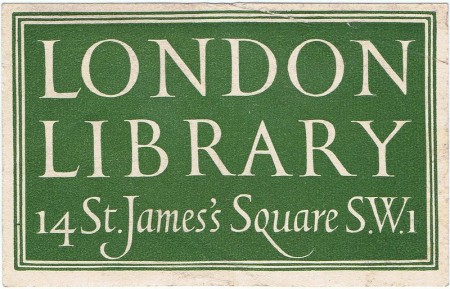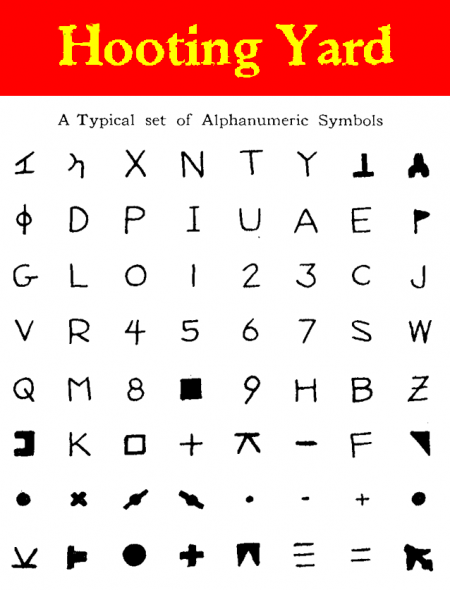OK, I am going to stop babbling on about John Ruskin, I promise. As a way of saying farewell, here is an extract from Fors Clavigera, Letter LXIX ,”The Message Of Jael-Atropos”, 1876. With minimal changes, what I have called John Ruskin On The Train could quite easily become Frank Key On The Bus:
I had driven from Brantwood in early morning down the valley of the Crake and took train first at the Ulverston station, settling myself in the corner of the carriage next the sea, for better prospect thereof. In the other corner was a respectable, stolid, middle-aged man reading his paper.
I had left my Coniston lake in dashing ripples under a south wind, thick with rain; but the tide lay smooth and silent along the sands; melancholy in absolute pause of motion, nor ebb nor flow distinguishable; – here and there, among the shelves of grey shore, a little ruffling of their apparent pools marked stray threadings of river-current.
At Grange, talking loud, got in two young coxcombs; who reclined themselves on the opposite cushions. One had a thin stick, with which, in a kind of St Vitus’s dance, partly affectation of nonchalance, partly real fever produced by the intolerable idleness of his mind and body, he rapped on the elbow of his seat, poked at the button-holes of the window strap, and switched his boots, or the air, all the way from Grange to the last station before Carnforth, – he and his friend talking yacht and regatta, listlessly; – the St Vitus’s, meantime, dancing one expressing his opinion that “the most dangerous thing to do on these lakes was going before the wind”. The respectable man went on reading his paper, without notice of them. None of the three ever looked out of the windows at sea or shore. There was not much to look at, indeed, through the driving, and gradually closer-driven, rain, – except the drifting about of the seagulls and their quiet dropping into the pools, their wings kept open for an instant till their breasts felt the water well; then closing their petals of white light, like suddenly shut water flowers.
The two regatta men got out, in drenching rain, on the coverless platform at the station before Carnforth, and all the rest of us at Carnforth itself, to wait for the up train. The shed on the up-line, even there, is small, in which a crowd of third-class passengers were packed close by the outside drip. I did not see one, out of some twenty-five or thirty persons, tidily dressed, nor one with a contented and serenely patient look. Lines of care, of mean hardship, of comfortless submission, of gnawing anxiety, or ill-temper, characterized every face.
The train came up, and my poor companions were shuffled into it speedily, in heaps. I found an empty first-class carriage for myself: wondering how long universal suffrage would allow itself to be packed away in heaps, for my convenience.
At Lancaster, a father and daughter got in; presumably commercial. Father stoutly built and firm-featured, sagacious and cool. The girl hard and common; well dressed, except that her hat was cocked too high on her hair. They both read papers all the way to Warrington. I was not myself employed much better; the incessant rain making the windows a mere wilderness of dirty dribblings; and neither Preston nor Wigan presenting anything lively to behold, I had settled myself to Mrs Brown on Spelling Bees, (an unusually forced and poor number of Mrs Brown, by the way).
I had to change at Warrington for Chester. The weather bettered a little, while I got a cup of tea and a slice of bread in the small refreshment room; contemplating, the while, in front of me, the panels of painted glass on its swinging doors, which represented two troubadours, in broadly striped blue and yellow breeches, purple jackets, and plumed caps; with golden-hilted swords and enormous lyres. Both had soft curled moustaches, languishing eyes, open mouths, and faultless legs. Meanwhile, lounged at the corner behind me, much bemused in beer, a perfect example of the special type of youthful blackguard now developing generally in England; more or less blackly pulpous and swollen in all the features, and with mingled expression of intense grossness and intense impudence; – half pig, half jackdaw.
There got in with me, when the train was ready, a middle-class person of commercial-traveller aspect, who had possessed himself of a ‘Graphic’ from the news-boy; and whom I presently forgot, in examining the country on a line new to me, which became quickly, under gleams of broken sunlight, of extreme interest. Azure-green fields of deep corn; undulations of sandstone hill, with here and there a broken crag at the edge of a cutting; presently the far glittering of the Solway-like sands of Dee, and rounded waves of the Welsh hills on the southern horizon, formed a landscape more fresh and fair than I have seen for many a day, from any great line of English rail. When I looked back to my fellow-traveller, he was sprawling all his length on the cushion of the back seat, with his boots on his ‘Graphic’ – not to save the cushions assuredly, but in the foul modern carelessness of everything which we have ‘done with’ for the moment; – his face clouded with sullen thought, as of a person helplessly in difficulty, and not able to give up thinking how to avoid the unavoidable.
In a minute or two more I found myself plunged into the general dissolution and whirlpool of porters, passengers, and crook-boned trucks, running round corners against one’s legs, of the great Chester station. A simply-dressed upper-class girl of sixteen or seventeen, strictly and swiftly piloting her little sister through the populace, was the first human creature I had yet seen, on whom sight could rest without pain. The rest of the crowd was a mere dismal fermentation of the Ignominious.
The train to Ruabon was crowded, and I was obliged to get into a carriage with two cadaverous sexagenarian spinsters, who had been keeping the windows up, all but a chink, for fear a drop of rain or breath of south wind should come in, and were breathing the richest compound of products of their own indigestion. Pretending to be anxious about the construction of the train, I got the farther window down, and my body well out of it; then put it only half-way up when the train left, and kept putting my head out without my hat; so as, if possible, to impress my fellow-passengers with the imminence of a collision, which could only be averted by extreme watchfulness on my part. Then requesting, with all the politeness I could muster, to be allowed to move a box with which they had occupied the corner-seat – “that I might sit face to the air” – I got them ashamed to ask that the window might be shut up again; but they huddled away into the opposite corner to make me understand how they suffered from the draught. Presently they got out two bags of blue grapes, and ate away unanimously, availing themselves of my open window to throw out rolled-up pips and skins.
General change, to my extreme relief, as to their’s, was again required at Ruabon, effected by a screwing backwards and forwards, for three-quarters of an hour, of carriages which one was expecting every five minutes to get into; and which were puffed and pushed away again the moment one opened a door, with loud calls of ‘Stand back there’. A group of half a dozen children, from eight to fourteen – the girls all in straw hats, with long hanging scarlet ribands – were more or less pleasant to see meanwhile; and sunshine through the puffs of petulant and cross-purposed steam, promised a pleasant run to Llangollen.
I had only the conventional ‘business man with a paper’ for this run; and on his leaving the carriage for Llangollen, was just closing the door, thinking to have both windows at command, when my hand was stayed by the father of a family of four children, who, with their mother and aunt, presently filled the carriage, the children fitting or scrambling in anywhere, with expansive kicks and lively struggles. They belonged to the lower-middle class; the mother an ideal of the worthy commonplace, evidently hard put to it to make both ends meet, and wholly occupied in family concerns; her face fixed in the ignoble gravity of virtuous persons to whom their own troublesome households have become monasteries. The father, slightly more conscious of external things, submitting benevolently to his domestic happiness out on its annual holiday. The children ugly, fidgety, and ill-bred, but not unintelligent, – full of questionings, ‘when’ they were to get here, or there? how many rails there were on the line; which side the station was on, and who was to meet them. In such debate, varied by bodily contortions in every direction, they contrived to pass the half-hour which took us through the vale of Llangollen, past some of the loveliest brook and glen scenery in the world. But neither the man, the woman, nor any one of the children, looked out of the window once, the whole way.
They got out at Corwen, leaving me to myself for the run past Bala lake and down the Dolgelly valley; but more sorrowful than of late has been my wont, in the sense of my total isolation from the thoughts and ways of the present English people. For I was perfectly certain that among all the crowd of living creatures whom I had that day seen, – scarlet ribands and all, – there was not one to whom I could have spoken a word on any subject interesting to me, which would have been intelligible to them.
But the first broad sum of fact, for the sake of which I have given this diary, is among certainly not less than some seven or eight hundred people, seen by me in the course of this day, I saw not one happy face, and several hundreds of entirely miserable ones. The second broad sum of fact is, that out of the few, – not happy, – but more or less spirited and complacent faces I saw, among the lower and the mercantile classes, what life or spirit they had depended on a peculiar cock-on-a-dunghill character of impudence, which meant a total inability to conceive any good or lovely thing in this world or any other: and the third sum of fact is, that in this rich England I saw only eight out of eight hundred persons gracefully dressed, and decently mannered.




